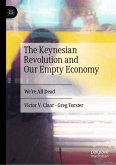This collection of thirteen essays on normative economics honouring Serge-Christophe Kolm's seminal contributions to this field addresses the following questions: How should the public sector price its production and services? What are the normative foundations of criteria for comparing distributions of riches and advantages? How should intergenerational social immobility and inequality in circumstances be measured? What is a fair way to form partnerships? How vulnerable to manipulation is the Lindahl rule for allocating public goods? What are the properties of Kolm's ELIE tax proposal? Would the addition of EU-level income taxes enhance equity? How should we compare different scenarios for future societies with different population sizes? How can domain conditions in social choice theory be justified using Kolm's epistemic counterfactuals? How can Kolm's distributive liberal contract be implemented? What are the implications of norms of reciprocity for the organization of society? The answers to these questions give major insight into the state-of-the-art of social ethics and normative economics and are thus an indispensable source for researchers in both of these fields.
Hinweis: Dieser Artikel kann nur an eine deutsche Lieferadresse ausgeliefert werden.
Hinweis: Dieser Artikel kann nur an eine deutsche Lieferadresse ausgeliefert werden.









